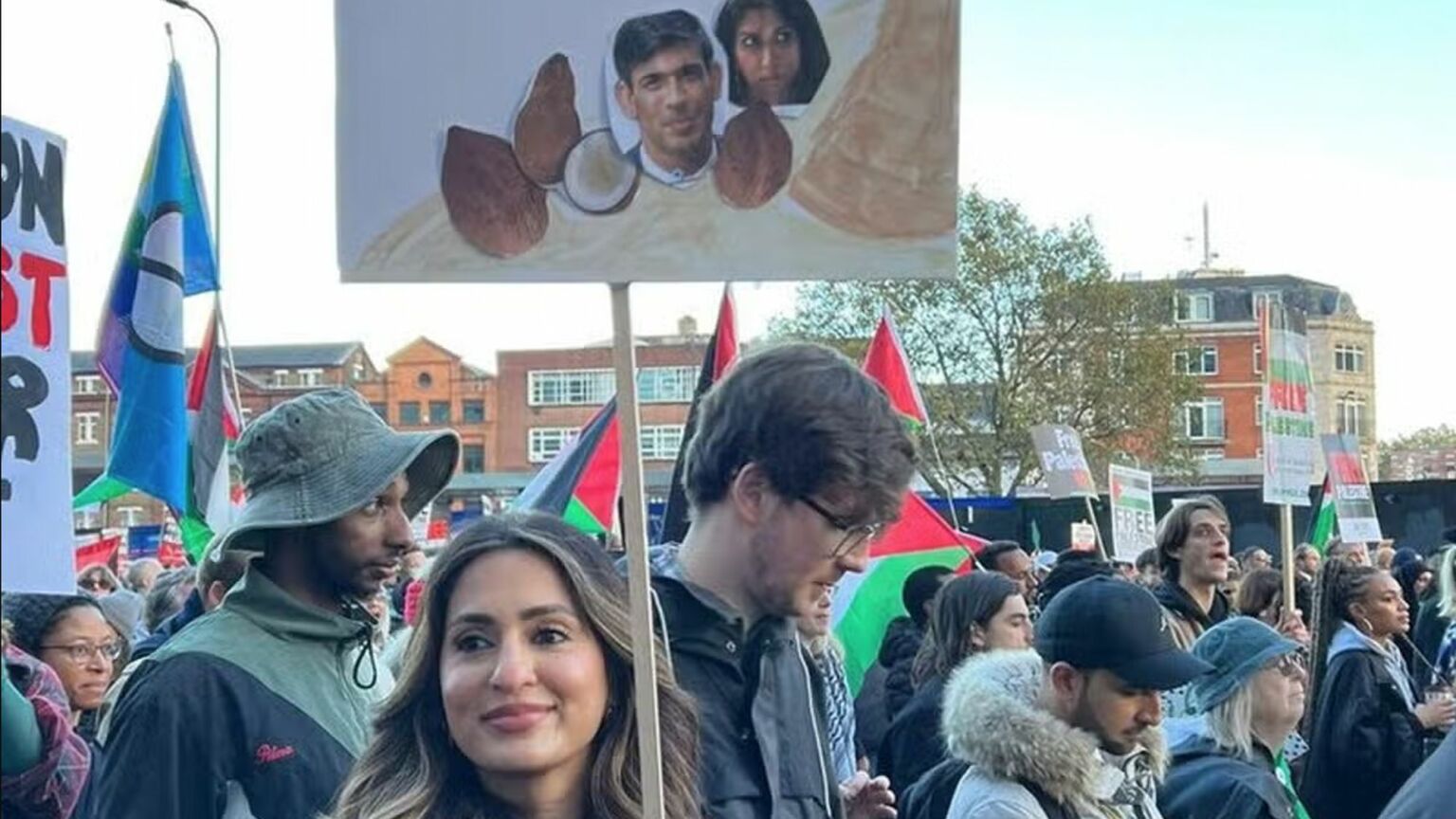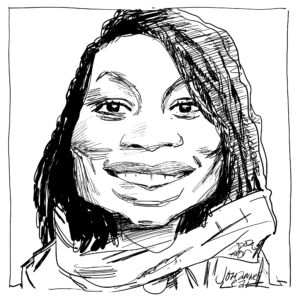Calling Rishi Sunak a ‘coconut’ should not be a crime
Woke activists are getting a taste of their own censorious medicine.

Want to read spiked ad-free? Become a spiked supporter.
Ever since ‘pro-Palestine’ marchers started regularly taking over London, the Metropolitan Police have been accused of ‘two-tier policing’. Their heavy-handed approach to English nationalist / football hooligan types could hardly be more different from their cavalier attitude to demonstrations where terrorist sympathisers and placards promoting racist and anti-Semitic tropes are frequently found among the crowd. Yet, according to Channel 4 News, it is not the unequal application of the law that should worry us, but the equal application of the law, where police investigate suspects without regard to their race or religious background.
This week, Channel 4 News published a bizarre report that asked whether hate-speech laws are being ‘weaponised’ against ethnic-minority Britons. Supposedly, the laws brought in to protect ‘marginalised groups’ from offence are now being turned against those very groups. The report cites a string of recent cases where ethnic-minority people have been investigated by police for using racial slurs against other ethnic-minority groups. It claims that there has been a rise in the number of black and Asian people charged for hate speech and that they are being targeted ‘disproportionately’ by police, although it did not provide any data to back this up.
According to Ministry of Justice statistics, the racial breakdown of people being convicted of hate crimes has remained pretty consistent over the past decade, although this is curiously omitted from the report. The proportion of white people convicted has hovered around 85 per cent – roughly proportionate to the population at large. While it is true that the proportion of those convicted of hate crimes who identify as black or Asian has risen, it has only done so very slightly, by a few percentage points. There has hardly been a sea change in hate-crime convictions.
Still, there have been some high-profile cases. At the centre of the Channel 4 News report is Marieha Hussein. She is currently under investigation for hate speech for holding a placard at a Palestine protest depicting UK prime minister Rishi Sunak and then home secretary Suella Braverman as coconuts under a tree. Calling Sunak and Braverman ‘coconuts’ suggests that they may be brown on the outside, but they are ‘white’ on the inside. It effectively deems them to be race traitors. It also suggests that to be or act ‘white’ means acting against the interests of ethnic-minority people.
A primary-school student could understand why the coconut slur is racist. It suggests that your character, values and moral outlook are determined by your race – and that anyone who defies the stereotypes is doing so for malign reasons. Yet speaking to Channel 4 News, Hussein refuses to recognise why the slur is demeaning and offensive to many. Instead, she doubles down, insisting she was merely making a ‘political critique’ of the Tory government. ‘It is about actions, not about race’, she says. Of course, that would only make sense if white public figures were also regularly denounced as ‘cocunuts’.
Another case highlighted in the report is the so-called emoji trial. Back in 2022, Conservative parliamentary candidate Ben Obese-Jecty was sent a racoon emoji by a black social-media user. Much like ‘coconut’, the term ‘coon’ refers to a black or brown person who panders to supposedly white interests. The case went to court and the unnamed defendant was acquitted of hate-crime charges in March.
To be clear, the police should not be investigating people for waving offensive placards or for posting emojis. There could hardly be a more wasteful use of police resources than tracking down people who have expressed dodgy views. Since she was publicly identified on the march, Hussein has also lost her job as a teacher. Although she has not been convicted of any crime, she has already faced severe punishment.
Of course, it would be one thing to object to these police investigations and hate-crime charges as a matter of principle. Yet no one in the Channel 4 News report raises any objections to hate-speech laws per se (nor can I recall Channel 4 making any kind of fuss over the scores of gender-critical people who’ve been harassed by police for their tweets). Instead, it is clear that Hussein and the other activists in the report want to racialise policing. Andy George, president of the National Black Police Association, says that the police need to ‘make sure that we don’t get caught up in anything like a culture war [and] make sure that we stay impartial’. Yet by ‘impartial’, he seems to mean that police should take a hands-off approach to racist speech when it comes from ethnic-minority communities – that certain groups should get a special carve out from the law. It is hard to see this as anything other than a recipe for racial resentment.
The hypocrisy here is brazen. Identitarian activists have long dismissed free speech as a concern of right-wing culture warriors. They have demanded safe spaces, trigger warnings and hate-speech laws to censor anything they consider offensive. Yet now they are bemoaning the use of the law to crack down on blatantly racist speech. Indeed, some on the campus left are going even further than this. They claim they have a right to harass Jewish students who support Zionism.
Ironically, Hussein’s case and the emoji trial highlight one of the oldest free-speech arguments in the book. If you call for censorship of so-called hate speech, it will eventually be used against you. After all, different people will be in power at different times and our understanding of ‘hate’ constantly changes. In any case, terms like ‘coconut’, ‘coon’ and ‘Uncle Tom’ clearly are – and always have been – racist, so if you support hate-speech laws, then you should surely expect them to be applied to these slurs, no matter who the perpetrator might be.
Ultimately, the moral of the story is that we should do away with all hate-speech laws. And in the meantime, we should stop reporting each other to the police for offensive speech. Officers should be policing our streets, not our tweets.
Inaya Folarin Iman is a spiked columnist and founder of the Equiano Project.
Picture by: X.
Who funds spiked? You do
We are funded by you. And in this era of cancel culture and advertiser boycotts, we rely on your donations more than ever. Seventy per cent of our revenue comes from our readers’ donations – the vast majority giving just £5 per month. If you make a regular donation – of £5 a month or £50 a year – you can become a and enjoy:
–Ad-free reading
–Exclusive events
–Access to our comments section
It’s the best way to keep spiked going – and growing. Thank you!










Comments
Want to join the conversation?
Only spiked supporters and patrons, who donate regularly to us, can comment on our articles.